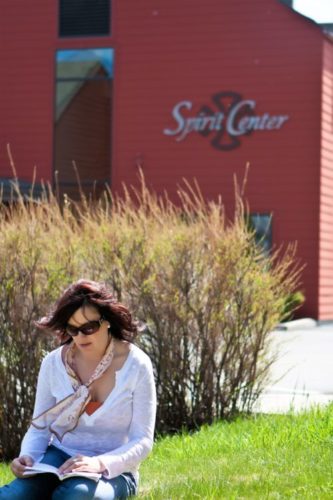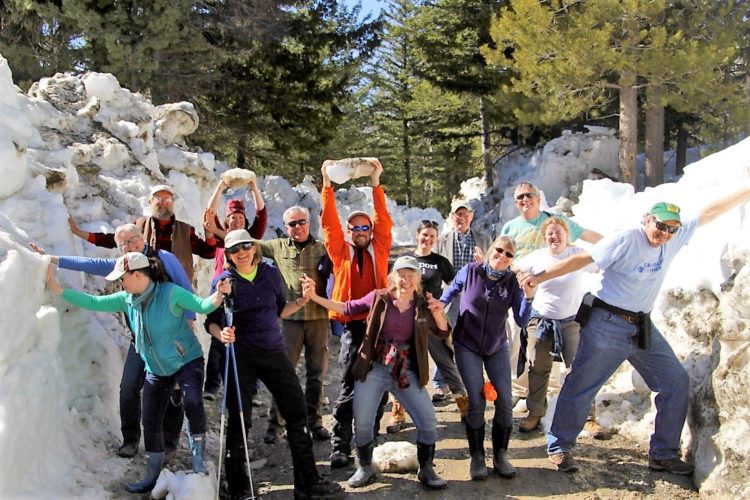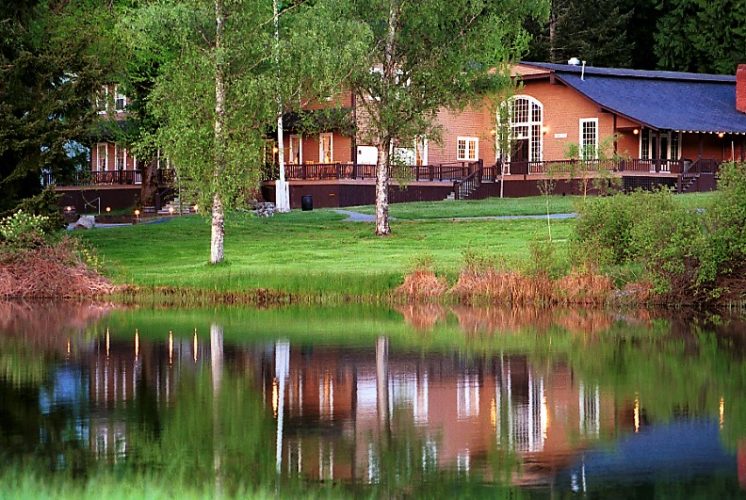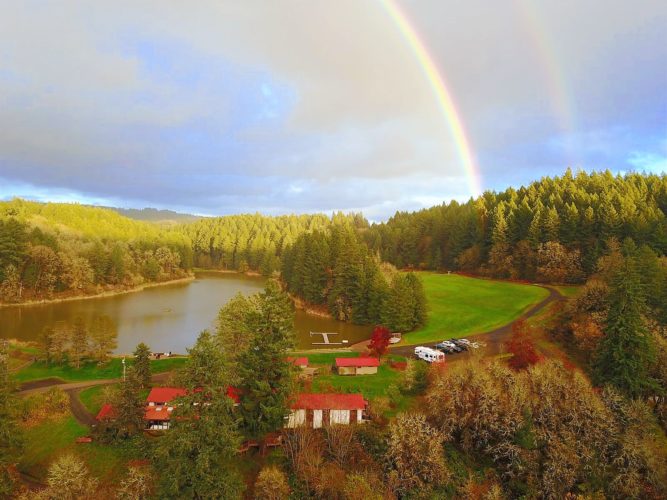We recently celebrated the official arrival of spring. As we shed our winter coats and embrace the slowly rising temperatures, we at the Murdock Trust are reminded of the reinvigoration that spending time outdoors brings after enduring months inside hiding from the cold, rain and snow. We are lucky to live in the Pacific Northwest, with an abundance of opportunities to experience the beauty and healing power of nature. And we’re fortunate to support organizations that help people do just that—retreat centers.

Monastery of St. Gertrude 
Holden Village 
Seabeck Conference Center 
Tilikum Center for Retreats
Retreats can be the perfect vessel to take a step away from everyday life to reflect and refresh, either alone or with others. Some people choose to take contemplative retreats as a time of self-reflection and spiritual renewal. Others take time with a community group to be intentional and connect more deeply with one another. And some workplaces take time away on staff retreats to refocus on their company’s mission and give coworkers time to better understand one another and become better working partners. Whatever the group of people or the reason for the retreat, time away is beneficial in many aspects, and different retreat centers specialize in each of these retreat opportunities.
Retreat centers like the Monastery of St. Gertrude in Idaho offer a focus on introspection and spiritual renewal. While the monastery is based in the Benedictine faith, the Sisters at the monastery host retreats that reach far beyond faith, instead focusing on promoting the arts, history, social justice and spirituality. And they do this while being good stewards of the earth by using solar power and geothermal heating and cooling in their retreat facility.
Retreats can be a time of learning as well as a time of rest. Holden Village in Washington invites teaching faculty from around the world to offer retreatants the opportunity to engage in conversation around topics like justice, peacemaking, ecology, the arts, philosophy, theology and more. Environmental learning is incorporated into time with nature, like hiking, at Holden Village. A Lutheran retreat center, Holden is specially geared toward communities of faith but is open to everyone seeking learning and spiritual renewal.
People who work in nonprofit organizations often find themselves overburdened by the magnitude of work to be done and a lack of funds and time to accomplish it all. The thought of taking the time and expense to go on a retreat can feel like a pipe dream. Which is why Seabeck Conference Center exists, because they understand that overworked and underpaid nonprofit staff especially need that time away to reconnect with one another and find a renewed passion for their missions. The conference center is ideally set between a forest and a lake, giving retreatants the space to connect with nature as they reconnect with their nonprofit passion.
Team building can be another great opportunity for a retreat. At Tilikum Retreat Center in Oregon, corporations, community organizations and athletic teams use their time to grow stronger in their respective groups. Team building happens in a variety of ways at Tilikum, from traditional time in meeting spaces, to rock wall climbing and basketball games in the gymnasium, to outdoor activities like zip-lining and canoeing on the lake. Tilikum even has a space specifically designed to help teams build and improve their group dynamic—the ropes course. Here, individuals must communicate well, trust one another and problem solve to make it through the end of the course. The lessons learned at a team-building retreat can pay dividends back in the office, improving coworker relationships, staff morale and productivity.
Retreats have a way of bringing together people from different backgrounds to learn about each other and themselves. Setting aside this intentional time gives people space they might otherwise not have in their everyday lives to learn new insights about themselves and those around them, develop new skills and come away with a refreshed outlook. When individuals are stronger, then families and workplaces, sports teams and faith groups are stronger. And our community as a whole is stronger when the people who are part of it become healthier.







